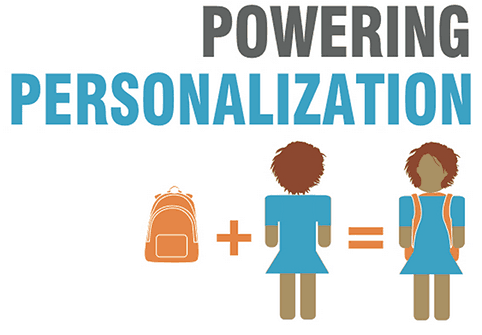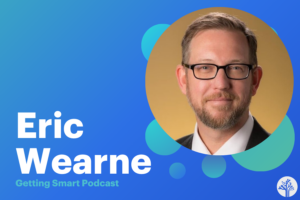What Can We Learn About Personalized Learning from Individualized Education Plans?

Karla Phillips
The goal of individualized education plans for students with special needs is finally beginning to extend to ALL students with the movement towards personalization. We know that all kids are unique and a one-size-fits-all model is hampering students from reaching their maximum potential. Fortunately, technological advancements in education are helping empower educators who have a vision for next generation learning.
As the effort to personalize learning begins in earnest, I will continue to ask what lessons can we learn after 40 years of implementing the Individuals with Disabilities Education Act (IDEA)? I think one of the big lessons is the quality of information you need to help educators truly personalize a student’s learning.
One of the hallmarks of special education has been the individualized education program (IEP). The IEP is required to collect information about the student such as current levels of academic achievement and functional performance, annual goals, progress, as well as the necessary services, supports and modifications. Maybe IEPs were the precursor to what we now envision as data backpacks and learner profiles.
Central to the idea of personalization are the concepts of data backpacks (common electronic student records) and complementary learner profiles customized with learner needs, strengths, interests and motivations. My colleagues here at Digital Learning Now recognized the experience that can be gleaned from years of implementing IEPs way back in 2012.
So, what can we learn about learner profiles from IEPs?
- Design data backpacks and learner profiles to focus on student strengths and interests, not their deficits or weaknesses. Historically, one of the biggest criticisms of IEPs has been that by their very design the focus is squarely on everything the student can’t do. Keep the focus of learner profiles on what students have already achieved and what strategies have worked. From there, incorporate learners’ interests, motivations and goals to discern how to take achievement to the next level.
- Don’t let the focus of data backpacks and learner profiles become instruments of compliance only. Preserve their potential power to inform instruction, empower families and guide parent decisions.
- Design data backpacks and learner profiles from the beginning to be fully accessible and to meet the needs of all stakeholders (administrators, teachers, parents and therapists). Ensure careful privacy safeguards are in place, and allow delegated users full access.
- Make portability a top goal. The past decade has demonstrated that software, vendors or even local decision-making can quickly impede the portability of student data. We live in a very mobile society. The ability of a school to be able to meet a student’s needs on Day One is critical.
- Think of the approximately half a million foster children in the United States. WestEd notes that in California youth in foster care average nine school transitions by age 18. Delays in student records and other critical information results in prolonged or inaccurate grade or course level placements as well as critical services and supports.
- Frequent relocations pose similar problems for the children of our nation’s military families. The potential of data backpacks and learner profiles to facilitate the ability of families and case managers to provide seamless transitions for students is exciting.
Data driven, personalized learning represents a brave new world. But let’s remember that if we don’t learn from history we will be destined to repeat it.
For more, see:
- What is Student Data?
- Implementing the Data Backpack: Utah’s Story
- The Opportunity for States to Provide Secure Data Access to Parents and Educators
- Implementation Challenges on the Path to Personalization
This post is a part of a Student Data Backpack blog series in the upcoming “Getting Smart on Personalization and Privacy” Smart Bundle produced in partnership with the Foundation for Excellence in Education’s Digital Learning Now initiative (@DigLearningNow) and the Data Quality Campaign (@EdDataCampaign). Join the conversation on Twitter using #EdData.

Karla Phillips is Policy Director at the Foundation for Excellence in Education. Follow her on Twitter @azkarla.







0 Comments
Leave a Comment
Your email address will not be published. All fields are required.